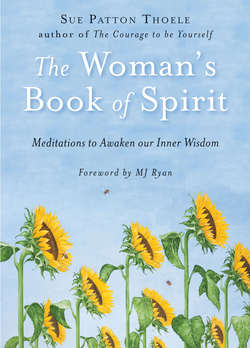Читать книгу The Woman's Book of Spirit - Sue Patton Thoele - Страница 18
На сайте Литреса книга снята с продажи.
Exploring the Family Tree
ОглавлениеIF WE HAVE ARID PLACES IN US FROM OUR experience with our parents, a great way to re-green them is to learn to understand, honor, and know our parents as human beings, not roles. If they are alive, we can talk to them about their childhoods and, by listening to their reminiscences, get a better feel for why and how they became the people they are. If our parents have died, we can talk to other family members and friends about them and explore letters and papers left behind.
Out of a deep desire to know who her father really was, Carrie created a four-page questionnaire and sent it to him. It had easy questions like, “What is your favorite color?” and “What were your parents like?” and tough ones such as, “How did you want me to think or feel about my sexuality?” and “Do you think about your own death, and are you afraid?” Although it took him a while to respond, to his credit, this quiet man attempted to answer most of his daughter's questions.
Carrie told me that his answers gave her a feeling of comfort and calm, an increased sense of why she is who she is, and a richer picture of her background. She better understands the influences that shaped both herself and her father, and she feels closer to him as a result.
In knowing our parents, we can more fully know ourselves. Ask yourself how you might be able to know your parents more authentically and decide what actions you want to take that are appropriate to your circumstances. Doing so may feel like a risk, but, who knows—within their histories, you may find an oasis for yourself.
Our personalities yearn to know and understand our souls. And when either is revealed, the other becomes more transparent, more readily available.
I love to learn about my background.
I love and honor myself and my parents.
